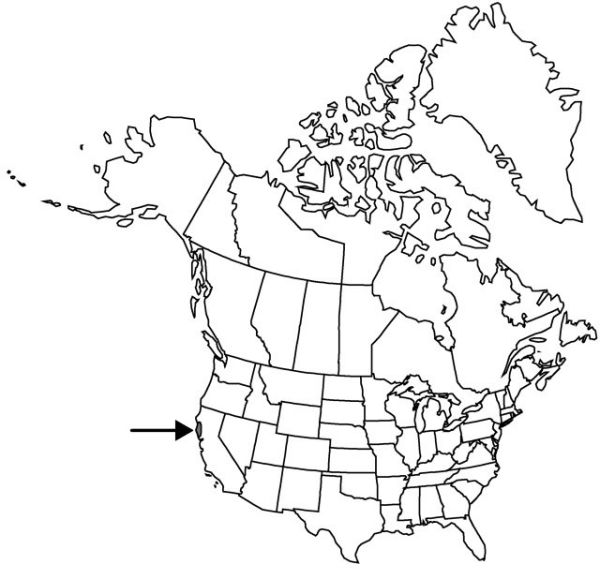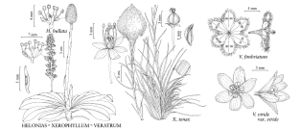Veratrum fimbriatum
Proc. Amer. Acad. Arts 7: 391. 1868.
Stems 1–2 m, densely tomentose distally. Leaves elliptic-lanceolate, reduced distally, 20–50 × 10–25 cm, glabrous or sparsely hairy. Inflorescences paniculate, with spreading to ascending branches, 30–50 cm, densely tomentose; bracts ovate to ovate-lanceolate, shorter than flowers. Tepals white, rhomboid-ovate to ovate, not clawed, 6–9 mm, margins ± deeply and irregularly fimbriate; glands 2, basal, ± mid tepal, yellow, elliptic; ovary glabrous; pedicel 6–12 mm. Capsules oblong-ovoid, 8–10 mm, glabrous. Seeds ± globose, wingless, 5–7 mm. 2n = 32.
Phenology: Flowering summer–early fall.
Habitat: Wet meadows in coastal scrub
Elevation: 0–100 m
Distribution

Calif.
Discussion
This showy Veratrum species differs from others in its fragrant flowers with deeply fringed tepals, wingless seeds, and auxiliary bulbs in the lower leaf sheaths, and is restricted as a paleo-endemic to a 96-km coastal stretch of Sonoma and Mendocino counties (C. A. Taylor 1956, 1956b).
Selected References
None.
